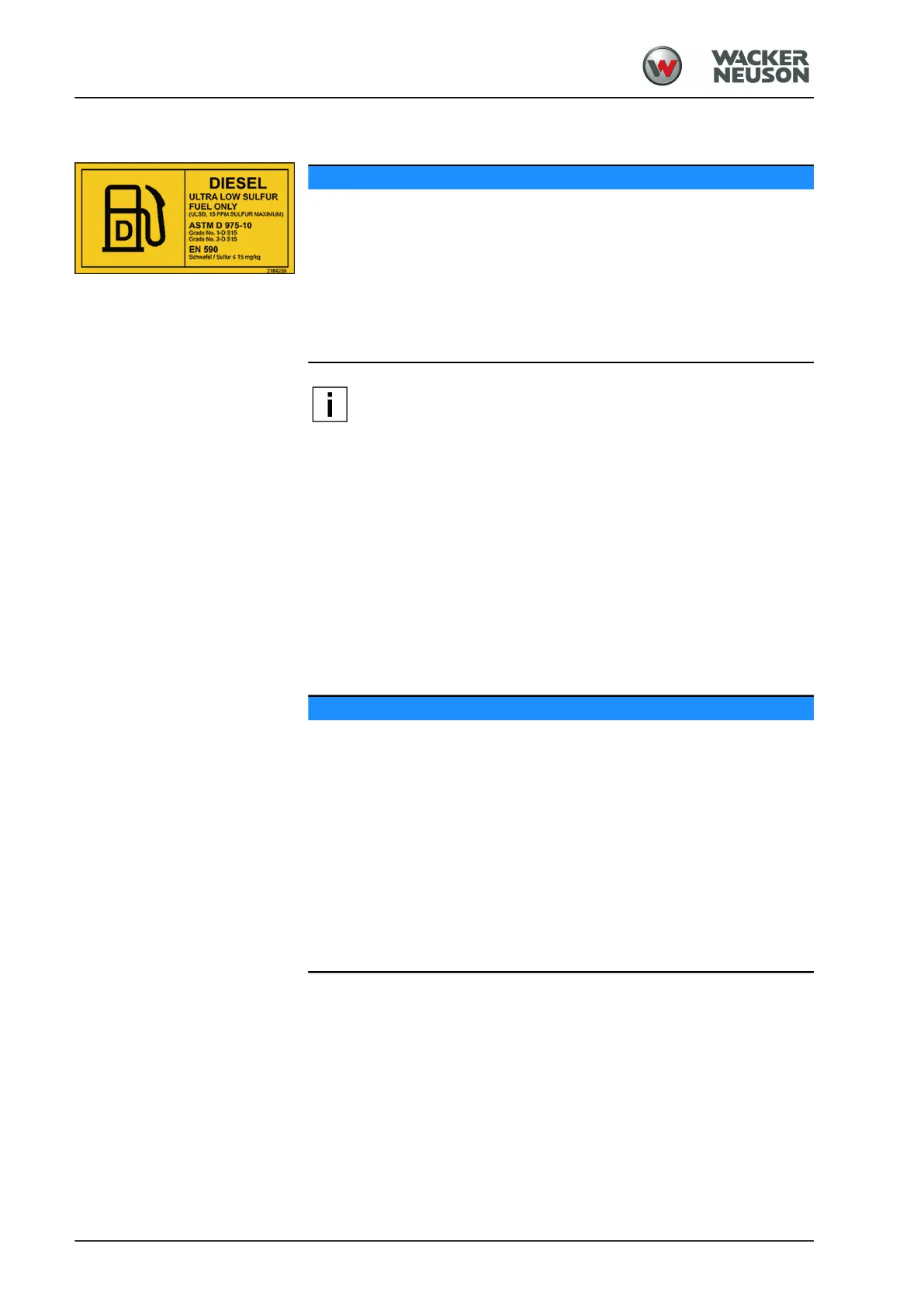Tables
Technical data
162
BA RC50_RC70 en 00
5.00.02 Fuel
NOTICE
Wrong fuel!
Using the wrong diesel fuel damages the engine, increases wear,
lowers operational reliability and shortens the service life of the engine.
Statutory emission limits breached through using the wrong diesel fuel.
■
Only use sulphur-free diesel fuel in diesel engines which have an
exhaust gas after-treatment system (sulphur content ≤ 15 mg/kg).
■
Only use diesel fuels that comply with EN 590 and ASTM D 975.
NOTE
The certification measurements to measure the compliance
with statutory emission limits are carried out using the test
fuels specified by law. These test fuels correspond to the diesel
fuels that comply with EN 590 and ASTM D 975, which are
described in this operating manual. If other fuels are used,
compliance with the legally specified emission values is not
guaranteed.
The guarantee only applies to diesel fuels which comply with
the permissible diesel fuel specifications.
The permissible diesel fuel specifications are:
■
EN 590 (sulphur content ≤ 10 mg/kg (10 ppm))
■
ASTM D 975-10 grade no. 1-D S15 and 2-D S15 (sulphur content
≤ 15 mg/kg)
Winter operation with diesel fuel
NOTICE
Low operating temperature!
Engine damage caused by adding liquids or additives to the diesel fuel
at low operating temperatures.
Using the wrong diesel fuel can cause clogging of the fuel system at
low operating temperatures.
■
Do not add any benzene, petrol or fluidity additive to the diesel
fuel.
■
Use winter diesel fuel for working at temperatures between 0 °C
(32 °F) and –20 °C (–4 °F)
■
Use special diesel fuels for working in arctic climatic zones with
temperature down to –44 °C (–47 °F).

